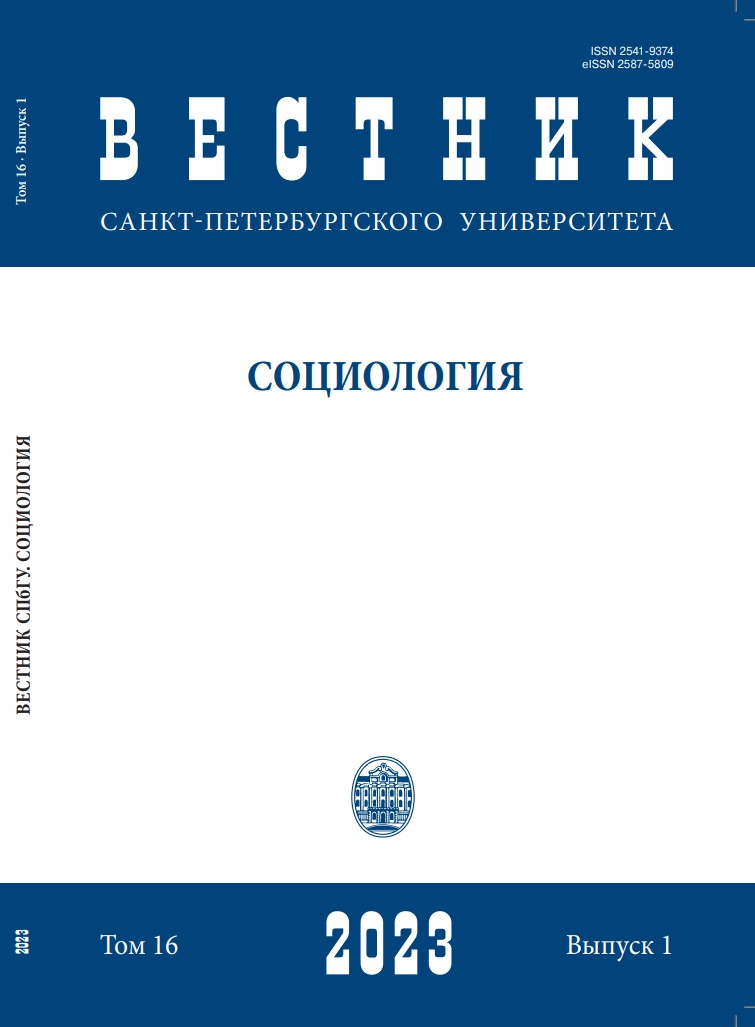“Voting with feet”: Russian electoral sociology on the problem of voter turnout (1989–1996)
DOI:
https://doi.org/10.21638/spbu12.2023.105Abstract
The article is devoted to the problem of turnout in elections in the USSR and Russia in the period from 1989 to 1996 in the assessment of Russian sociologists and social scientists. The theory of representative democracy in its neoliberal version narrows the acts of legitimation to the voting procedure. The experience of implementing these principles in the USSR and the Russian Federation at the end of the 20th century is quite relevant for the development of contemporary political sociology. The goal is a retrospective (historical) study of the explanatory schemes offered by Russian electoral sociologists and representatives of related disciplines on the decline in voter turnout in the 1989–1996 elections. Objectives: 1) description of specific situations, 2) analysis of the positions and arguments put forward, 3) generalization of the hypotheses and concepts proposed. Traditional methods for works of this nature were used (analysis, synthesis, heuristic, descriptive). The decline in the number of voters was constant. As in the rest of the world, it primarily affected those structures that were not perceived as significant. This led to a gradual lowering of the electoral barrier, even to its abolition. The statement about “voting with one’s feet” as a result of disappointment in the socio-economic transformations of the 1990s became a common place in the sociologists’ reasoning. The active part of the electorate, affiliated with certain political forces and organizations, reacted sensitively to mass media reports of falsifications. The general decline in voter turnout was perfectly exploited by political technologists for the benefit of their clients. The first steps of the Russian electoral sociology were not able to improve the situation in the socio-political orientation of the electorate.
Keywords:
electoral sociology, voting turnout, absenteeism
Downloads
References
Downloads
Published
How to Cite
Issue
Section
License
Articles of "Vestnik of Saint Petersburg University. Sociology" are open access distributed under the terms of the License Agreement with Saint Petersburg State University, which permits to the authors unrestricted distribution and self-archiving free of charge.




